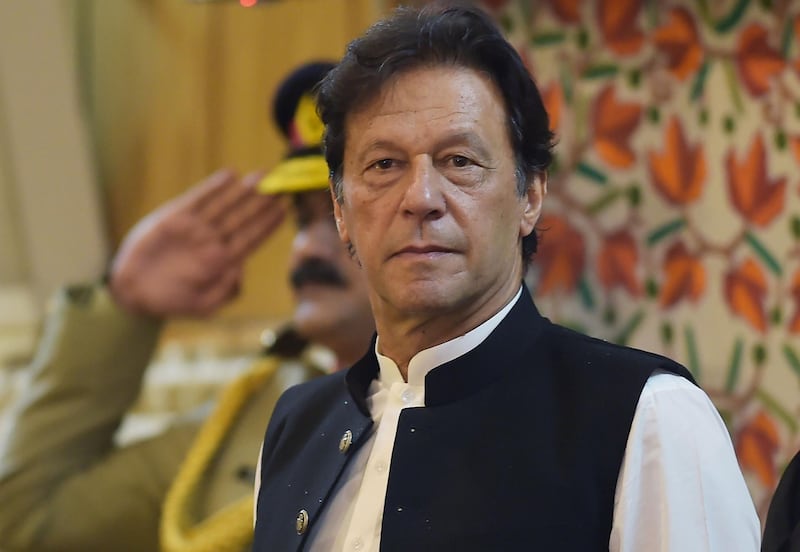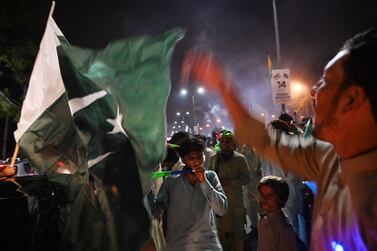Prime Minister Imran Khan warned India on Wednesday that Pakistan was prepared to respond to any aggression in the disputed region of Kashmir, vowing the time had come to teach Delhi a lesson.
Mr Khan's remarks come amid heightened tension between the nuclear-armed rivals after India's surprising move to revoke the autonomy of its portion of the disputed Himalayan territory last week.
"The Pakistani army has solid information that they [India] are planning to do something in Pakistani Kashmir, and they are ready and will give a solid response," Mr Khan said during a televised speech in Muzaffarabad, capital of Pakistan-administered Kashmir.
"We have decided that if India commits any type of violation we will fight till the end."
The former cricketer's warnings of war represented a steep escalation in Pakistani rhetoric after Islamabad said last week that it had ruled out a "military option" over the dispute.
"The time has arrived to teach you a lesson," Mr Khan said in the speech marking the country's Independence Day.
After Delhi's move to abolish Kashmir's special status, Pakistan launched a diplomatic offensive aimed at reversing the order and formally asked the United Nations Security Council late on Tuesday to hold an emergency session to address India's "illegal actions".
Pakistan has also expelled the Indian ambassador, halted bilateral trade and suspended cross-border transport services. However, analysts said the actions were unlikely to move Delhi.
The Indian part of the picturesque Himalayan state has been under lockdown for more than a week with tens of thousands of troop reinforcements deployed to the main city of Srinagar and other towns and villages.
A curfew has also been enforced across the region and phone and internet lines cut to quell potential unrest.
Indian authorities vowed to reduce the restrictions on freedom of movement in their portion of Kashmir after the country's own Independence Day celebrations on Thursday.
This week Mr Khan lambasted the international community for failing to challenge India and said turning a blind eye to the spread of Indian Hindu nationalism was the same as appeasing Hitler, a comparison he made again on Wednesday.
As tension simmered with India, Pakistan moved ahead with Independence Day celebrations which began at the stroke of midnight with firework shows lighting up the skies in major cities, where residents jammed the streets waving the national flag from their cars and motorcycles.
In August 1947 the British Raj was dismantled with the subcontinent divided into two independent states — Hindu-majority India and Muslim-majority Pakistan.
Millions were uprooted in one of the largest mass migrations in history, with experts estimating at least one million died in the communal violence unleashed by the partition that continues to haunt the subcontinent to this day.
Kashmir was divided between India and Pakistan after independence from Britain in 1947, and has been the spark for two wars between the two nuclear-armed arch-rivals.






